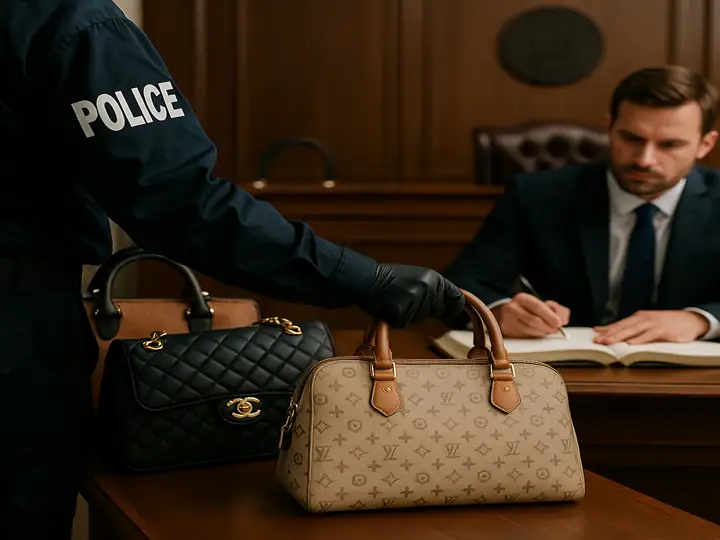Luxury Criminal Law: Legal Defense Against International Counterfeiting
The world of luxury and fashion is one of the sectors most exposed to the risk of international counterfeiting. Every year, renowned companies and brands suffer significant financial losses due to the illegal production and distribution of counterfeit goods. Luxury Criminal Law is specifically focused on protecting these interests by providing legal tools to combat such phenomena. Counterfeiting not only affects revenue but also undermines brand reputation, identity, and commercial value.
Luxury Criminal Law and Counterfeiting: What Are the Risks?
According to the latest estimates, the counterfeit market exceeds $500 billion annually. The most affected sectors include:
- Fashion and accessories: handbags, clothing, footwear
- Luxury jewelry and watches
- High-end cars and exclusive design items
- Premium cosmetics and perfumes
Counterfeit products are usually manufactured in Asia or other emerging countries and then distributed via online marketplaces, illegal channels, and even the dark web. Illegal imports into European and North American markets are among the most critical areas for customs authorities and companies seeking protection.
The Consequences for Luxury Brands
Being the victim of counterfeiting can have devastating consequences, including:
- Direct and indirect financial losses
- Damage to brand image
- Association (even perceived) with criminal activity
- Undermining of competitiveness in international markets
Protecting one’s commercial identity is therefore an absolute priority for any company operating in the luxury market.
Combating Counterfeiting: What Legal Defense Tools Are Available?
Luxury criminal law enables brands to take concrete action against the production and distribution of counterfeit goods. The most common legal strategies include:
- Criminal action against producers and sellers of counterfeit products
- Request for international seizure of counterfeit goods
- Cooperation with authorities in criminal investigations and complaints
- Digital monitoring and removal of illegal listings from online platforms
- Protection of intellectual property: trademarks, patents, designs
Companies can also adopt legal compliance tools and targeted prevention strategies to limit the spread of counterfeits and strengthen their legal presence in global markets.
Offenses Provided for by the Criminal Code
The Italian Criminal Code, like many European legal systems, imposes severe penalties for counterfeiting-related crimes, including:
- Counterfeiting of trademarks and patents (Article 473 of the Criminal Code)
- Importation and sale of counterfeit goods (Article 474 of the Criminal Code)
- Criminal conspiracy for illegal trafficking
- Fraud, scams, and industrial property violations
Sanctions may include up to 6 years of imprisonment, high fines, and confiscation of goods. In proven cases of harm, the victim company is entitled to full compensation for both financial and reputational damages.

